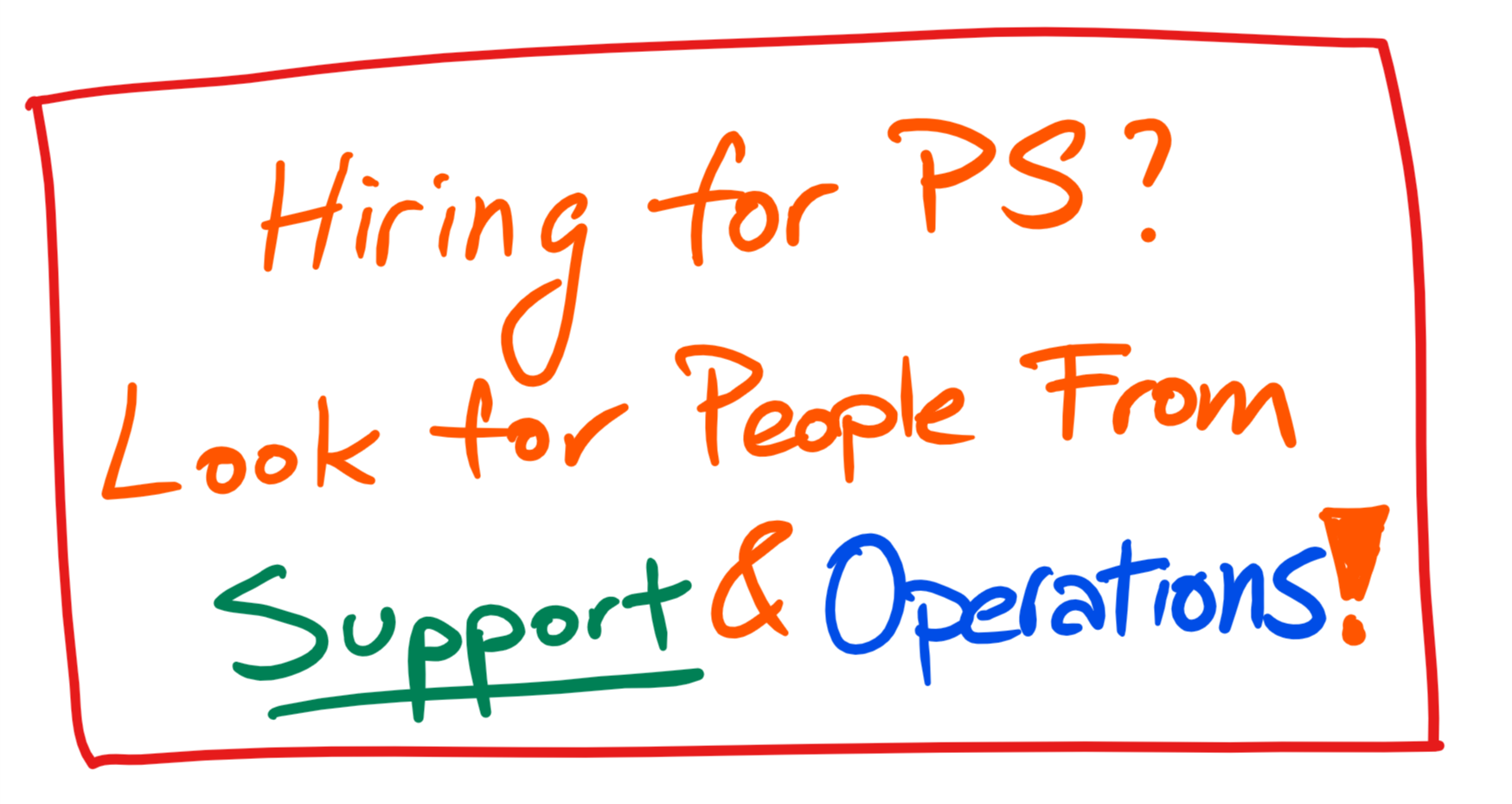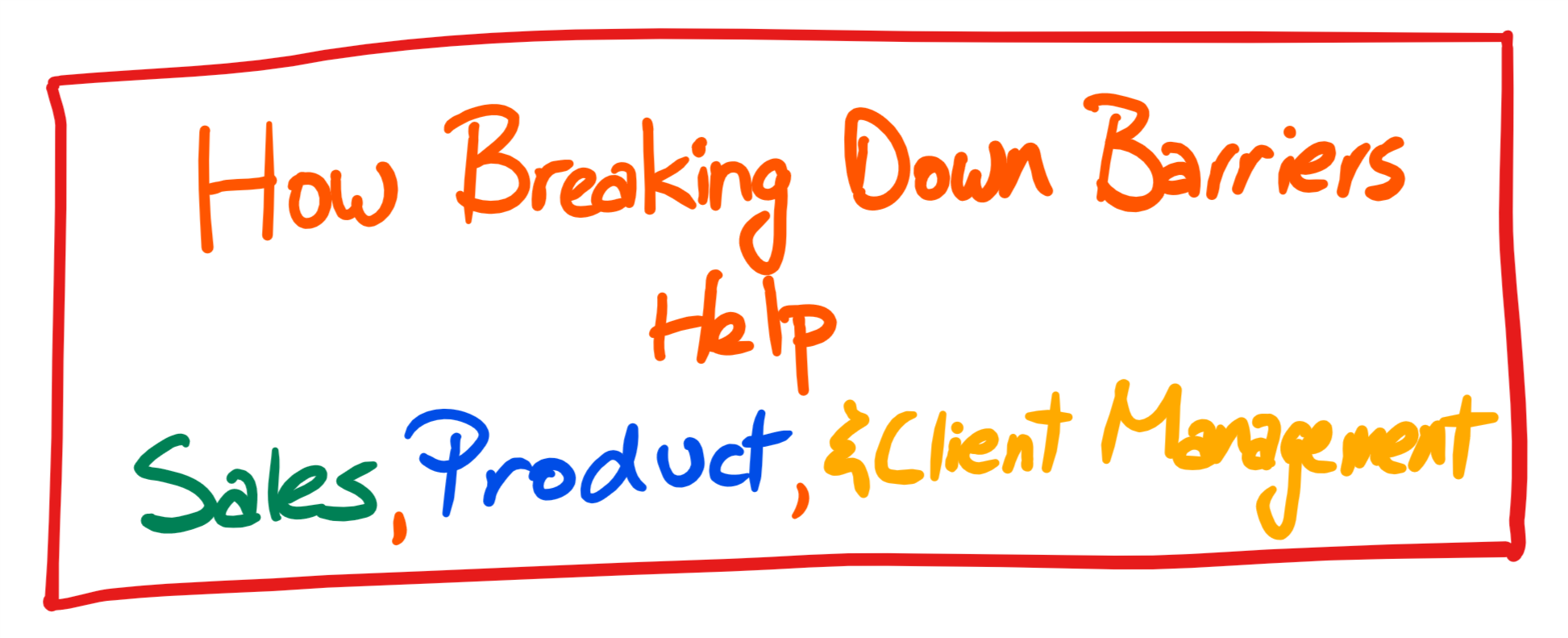Hiring into a PS team is hard. Most of the time, we beat our heads at a wall to find candidates that do the same things we do. I've had great success at building PS teams with those from support and operations organizations. Read on to find out my 4 reasons why I think they make great PS colleagues!
Want to be a Great Trusted Advisor? Start By Being a Great Human.
Hiring for Professional Services? Look for "Fit and Drive" Instead of Skillsets.
Hiring for Professional Services teams tends to be difficult. We don't seem to find as many professional services candidates to fill our teams. Don't blame a smaller hiring pool of generalists! Start finding great people who share our passion to be great trusted advisors and our drive to learn and grow beyond a single discipline. Read to find out more!
Intense Training is Important for Technical Teams - Here's How to Do It
Teams that compete and win all have one thing in common: They train. They train hard, and they train often. So, why should our team be any different? Read on to find out how intense team training focusing on developing and improving our synaptic responses can be a great way to spread knowledge and build confidence amongst ourselves and our clients.
Start with Humility: Leading a Team When They're All Smarter than You
Why Asking Your Team to be "More Positive" Turn Good Meetings into Terrible Ones
When we start our meetings with asking your team to "stay positive", we are setting the groundwork for terrible discussions. Why is that? Read on to find out why a simple request is a powerful order to stifle debate and dissent, and what we as good leaders should say instead of foster true honesty and collaboration.
What is Pattern Recognition and Why You Should Do it More Often
Why is pattern recognition important for services teams? How does our pattern recognition help our organization figure out anticipatory problems? Where do we get started? We dive into the 3-step process on how professional services teams can take our learnings, make it relevant, and affect positive change for our clients.
4 Tested Ways For Amazing Collaboration with Sales & Product
Part III on our series on breaking down barriers. We all know why it's a good idea to work more closely with our colleagues, and how we all benefit. This week, I lay out 4 concrete exercises that you can run with your sales and product teams to build rapport, learn from one another, and contribute to each other's success.
How Breaking Down Departmental Barriers Help our Friends from Sales, Product, and Client Management
4 Reasons Why We Shouldn't Work in a Departmental Vacuum
3 Reasons PS Work Shouldn't Be Given Away for Free
What happens when we start giving away our work for free? Clients get the wrong idea of the value we bring to our table, commitment takes a hit, and our internal teams start asking questions on how we're contributing to our organization. We look at 3 reasons why we shouldn't be giving away our work, and a tactic to assign value without assigning cost.
The Three Reasons Why Projects Stay On Track, And One Way to Stay Relevant with your Clients
What are the reasons why some projects stay on track while others derail? We look at a couple of factors outside our influence (lack of options and the fear of missing out), and one strategy we can all use (alignment with our client's business roadmaps) to ensure our projects always keep moving forward.
3 Steps to Mine for Anticipatory Pain
Part 2 of the series on Pain. When our clients come to us with immediate pains, it presents an opportunity for us to mine deeper to find out their big anticipatory pains. Forming an agreement that bigger pains exist, correlating anticipatory pains to their immediate hurt, and building a solution that address the short-term first will help you build the trust needed for your clients to come to you with their biggest business problems.
The Three Types of Client Pain, and the One Pain that Every PS Team Should Focus On
My 2 Rules for Great Team Meetings
Great meetings results in consensus built, decisions made, and directions agreed to. Bad meetings not only undermine consensus and decisions, but it also destroys team trust resulting in resentment, grudges, and apathy. Here are my 2 rules to great meetings that help teams leave nothing on the table so they can foster participation, understanding, and cooperation.
3 Reasons Why PS Team Cohesion is Important, and 4 Ways to Build it Up
A PS team can be greater than the sum of its parts! Building and growing a cohesive PS team takes effort and hard work, but there are 3 really good reasons to do it: it promotes learning, allows for greater pattern recognition of problems, and encourages adherence to standards. Learn how to help build a cohesive PS team with 4 simple tactics!
Measuring the 3 Fundamentals of PS Success
Measuring the success of a professional services team can be nebulous. Resist the urge to take the easy route of tracking dollars or "time spent" alone! Measure the team based on how they are executing on the three fundamentals of a great professional services team: How well are they diagnosing pain? How objective are they in solving client pain? And finally, how strong are the long-term partnerships we are striving to develop and maintain?
Making the Case for an Independent Professional Services Team
With unique objectives, measurements, and a strong voice at the management table, structuring an independent professional services team strengthens an organization's ability to continuously focusing on doing what's right for every client. It's definitely more work than to have a PS team report to sales, marketing, product, or another organizational unit, but in the long run it's more rewarding and sustainable.























